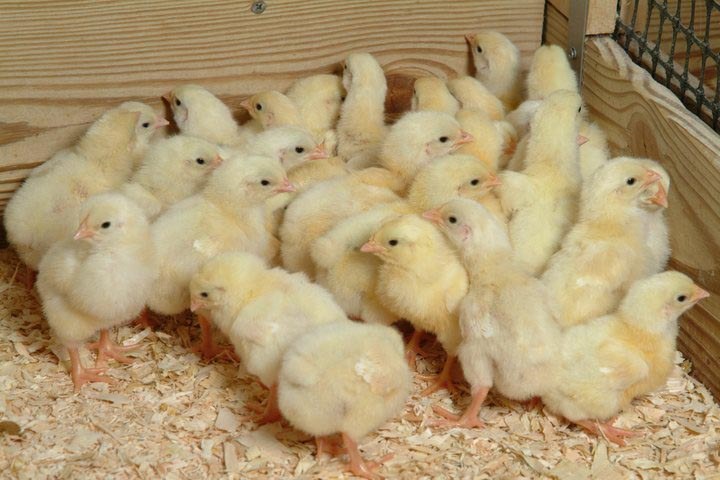Resources for educators teaching embryology in the classroom.

A unique classroom experience for your students!
Elementary school students (2nd through 6th grade) have the opportunity to observe embryo development and manage the classroom incubator across the chicken incubation period of 21 days. Students are engaged during the setup of the incubator, setting and incubation of fertile eggs, and hatching and initial brooding of the chicks in the classroom. Students candle the eggs to observe development a minimum of 3 to 5 times during the incubation period. They take responsibility for monitoring the incubator and turning the incubating eggs. This hands-on interactive project takes place over a period of 4 weeks.
To enroll your class in this 4-H program, reach out to your County 4-H Educator. Find your county 4-H program or reach out to Deborah Dietrich (dad7@psu.edu ).
Resources Provided by the Pennsylvania 4-H Program:
- Comprehensive online 4-H Embryology in the Classroom training course, which provides all the information needed to successfully incubate chicken eggs
- Access to the 4-H Embryology Tool Kit, which includes resource materials for the classroom teacher to feel comfortable leading this classroom project:
- PA STEELS Standards Alignment chart
- Weekly PowerPoint presentations
- Library of videos to supplement learning
- Incubator record charts
- Supplemental activities to extend the learning fun
- 4-H Embryology Project student workbook for each student
- Expertise available on-demand for troubleshooting any issues that may arise in incubation or embryo development
- Fertile chicken eggs from a commercial hatchery
- Classroom size incubator and candler (although school purchase of equipment is encouraged)
- Chick starter for classroom chicks
- Chick placement at the conclusion of the program (unless the teacher has a placement plan)
Teacher/School Responsibility:
- Return to the county 4-H Educator all registration and enrollment paperwork along with applicable program fee, which varies by county, as well as complete the program evaluation survey
- Manage incubator and ensure student and embryo safety
- Create a temporary chick brooder box for hatched chicks to reside for 3-4 days
Educational Objectives:
Youth participating in the 4-H Embryology Project will:
- Learn about the life cycles through the observation of chicken embryo development.
- Learn about the needs of living things and discover how the incubator and parts of the egg provide for the developing chicken embryo.
- Develop responsibility through the management and care of the classroom incubator.
- Develop science inquiry skills of observation, comparing, measuring and data recording.
- Learn about the food and fiber system specific to the poultry industry.
Aligns with Pennsylvania STEELS Standards
The 4-H Embryology Project aligns with many of the standards, across all grade levels, in the Life Science (3.1) discipline and the Agricultural Systems standard in the Environmental Literacy & Sustainability discipline (3.4). The 4-H Embryology Project also provides students with opportunities to be hands-on with Science and Engineering Practices in three-dimensional learning. Check out the PA 4-H Embryology STEELS Alignment Chart.
In addition to alignment specific to the science content, many teachers have creatively cross-aligned the 4-H Embryology Project within their Language Arts, Reading and Writing, and Mathematics PA Common Core Standards. The possibilities for standards alignment are vast!
Biosecurity, Health Risks and the 4-H Embryology Program:
- The 4-H Embryology School Enrichment Program only incubates fertile chicken eggs from commercial hatcheries that have protocols to prevent disease.
- Instructions in proper handwashing is a component of the program. Youth are required to wash their hands before and after handling the eggs and chicks. This protects the students, the developing embryos and the hatched chicks.
- Proper cleaning and disinfection of the incubators and environment before and after the program is performed for hygiene and program success.
- Check out the "Don't Chicken Out Due to Unnecessary Health Concerns" article link
4-H Membership Benefits
Youth enrolled in the 4-H Embryology Project through our school program are members of their county 4-H program. They have the opportunity to continue their 4-H involvement by enrolling in one of the county's many 4-H clubs, day camps or other educational programs. Families can find out more.
This article will help inform individuals about the true level of potential health risks associated with the 4-H Embryology in the Classroom project.

